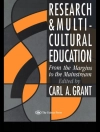Reparation and the place of the victim in the criminal justice process have been the focus of recent legislation and policy initiatives. As a result practitioners are required to place more emphasis on working with victims. The contributors to this book bring together research material from the wide range of disciplines involved and present an overview of the information needed for effective practice.
They examine the practicalities of reparation orders, family group conferencing, restorative cautioning schemes and the workings of youth offending teams. They also evaluate the effects of legislation such as the Crime and Disorder Act and the Victim’s Charter and explore issues raised by specific types of crime such as urban and rural crime, ‘hate crimes’ and male violence in the home. This book is essential reading for all agencies and individuals working with offenders and their victims.
Tabela de Conteúdo
1. Introduction, Brian Williams, De Montfort University, Leicester. 2. Compensating Victims of Crime in the European Union: The Case for State Restitution, Jo Goodey, Centre for International Crime Prevention, United Nations, Vienna. 3. Restorative Justice: The Choice between Bilateral Decision-making Power and Third Party Intervention, Jo-Anne Wemmers, School of Criminology, University of Montreal. 4. Family Group Conferencing: A Victim Perspective, Guy Masters, Australian National University. 5. Reparation Orders, Jim Dignan, University of Sheffield. 6. Responding to Victims of Crime in Rural Areas, Susan R. Moody, University of Dundee. 7. Supporting Victims of Racist Abuse and Violence, Charlotte Knight, De Montfort University, Leicester and Karen Chouan, De Montfort University, Leicester. 8. Probation Work With Victims of Crime, Barbara Tudor, Development Officer, West Midlands Probation Service. 9. Victim Impact Statements: Voices to be Heard in the Criminal Justice Process? Sandra Walklate, Manchester Metropolitan University. 10. Addressing Victim Issues in Pre-sentence Reports, Jane Dominey, Probation Officer, Cambridge. 11. Effective Work with Abusive Men: Listening to Women. David Morran, University of Stirling, Moira Andrew, Domestic Violence Probation Programme, Edinburgh and Rory Macrae, Domestic Violence Probation Programme, Edinburgh. Index.
Sobre o autor
Barbara Tudor is Area Victim/Offender Development Officer for the National Probation Service, West Midlands, UK.












